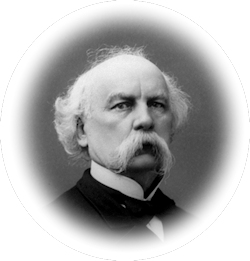William Henry Trescot to Howell Cobb.
Washington [D. C], Decem, 14, 1860.
Dear Sir: I have no time to tell all that has happened here. I write to say that if you hope to do any good in Columbia, recommend the following plan which I cannot argue but which will explain itself. It has the recommendation of Hunter, Davis and Yulee. Let the State pass its ordinance providing
1. The immediate, absolute, irrevocable secession of S. C.
2. That commissioner or commissioners be appointed to notify the fact and negotiate.
3. That in order to the proper execution of this ordinance and to avoid all unnecessary business disturbance, all collectors, treasurers post masters and other officers holding commissions under the U. S. be allowed ______days to wind up the affairs, settle the a/c, etc., of their respective offices, after which date the said offices shall expire within the State.
I have no time, as you can well imagine, in the present confusion to say more; but the whole scope and advantage of the plan both to the State and the country will suggest themselves to you at once.
From Annual Report of the American Historical Association for the Year 1911.
William Henry Trescot was an American diplomatist born in Charleston, South Carolina, on November 10, 1822. From 1852 to 1854 he was secretary of the U.S. legation in London. In June 1860 he was appointed assistant secretary of state, and he was acting secretary of state in June–October, during General Lewis Cass’s absence from Washington, and for a few days in December after Cass’s resignation. His position was important, as the only South Carolinian holding anything like official rank, because of his intimacy with President James Buchanan, and his close relations with the secession leaders in South Carolina. He opposed the reinforcement of Fort Sumter, used his influence to prevent any attack on the fort by South Carolina before the meeting of the state’s convention called to consider the question of secession, and became the special agent of South Carolina in Washington after his resignation from his position as United States Assistant Secretary of State in December. He returned to Charleston in February 1861.
Howell Cobb was an American political figure. A southern Democrat, Cobb was a five-term member of the United States House of Representatives and Speaker of the House from 1849 to 1851. He also served as the 40th Governor of Georgia and as a Secretary of the Treasury under President James Buchanan. Cobb is, however, probably best known as one of the founders of the Confederacy, having served as the President of the Provisional Congress of the Confederate States.
